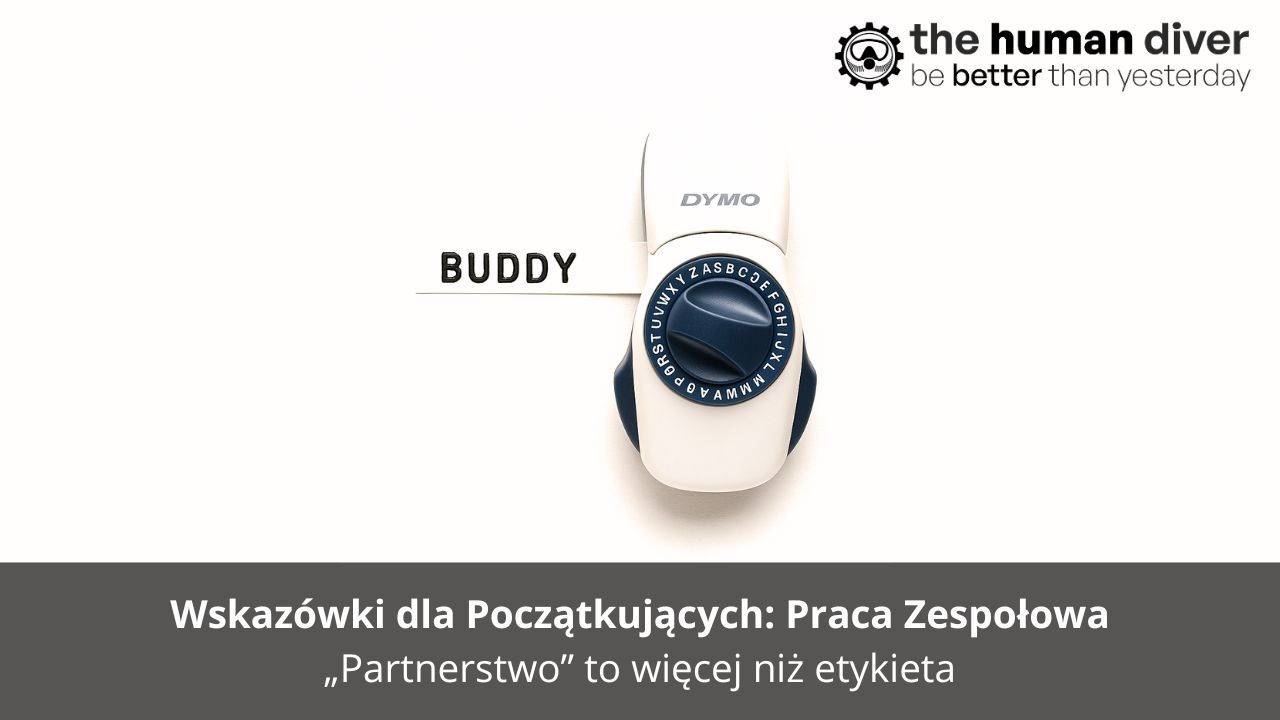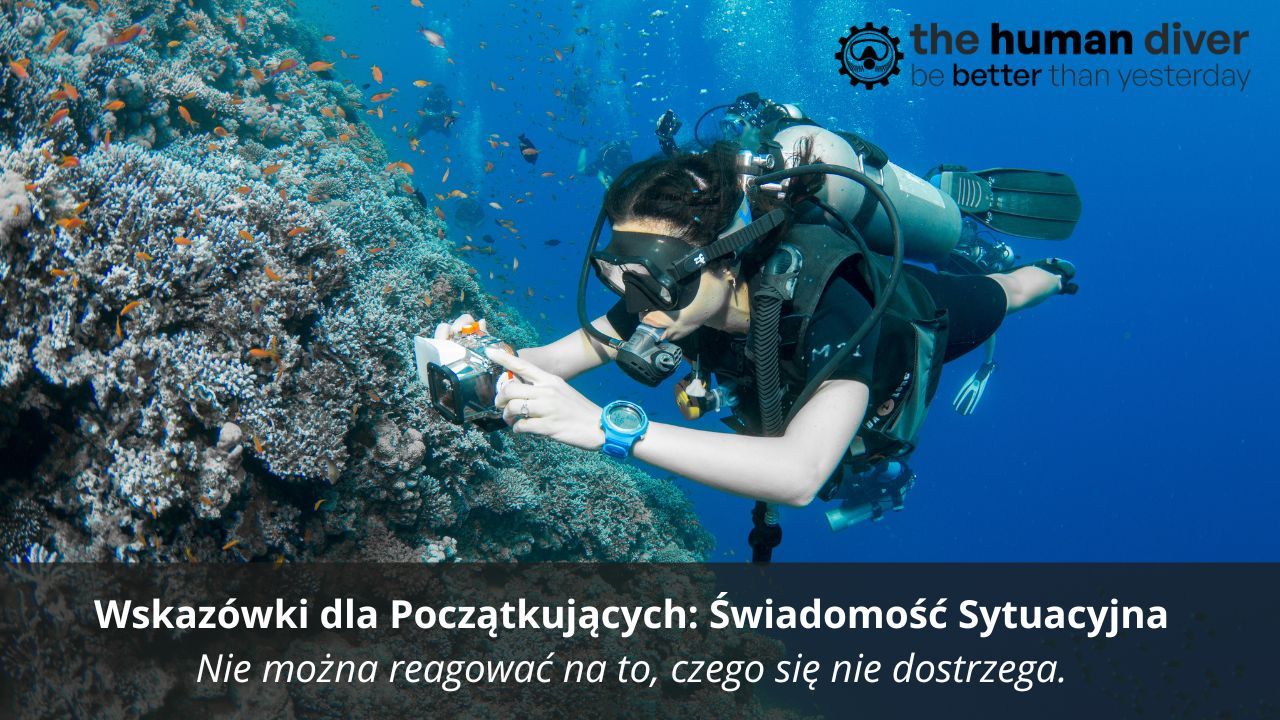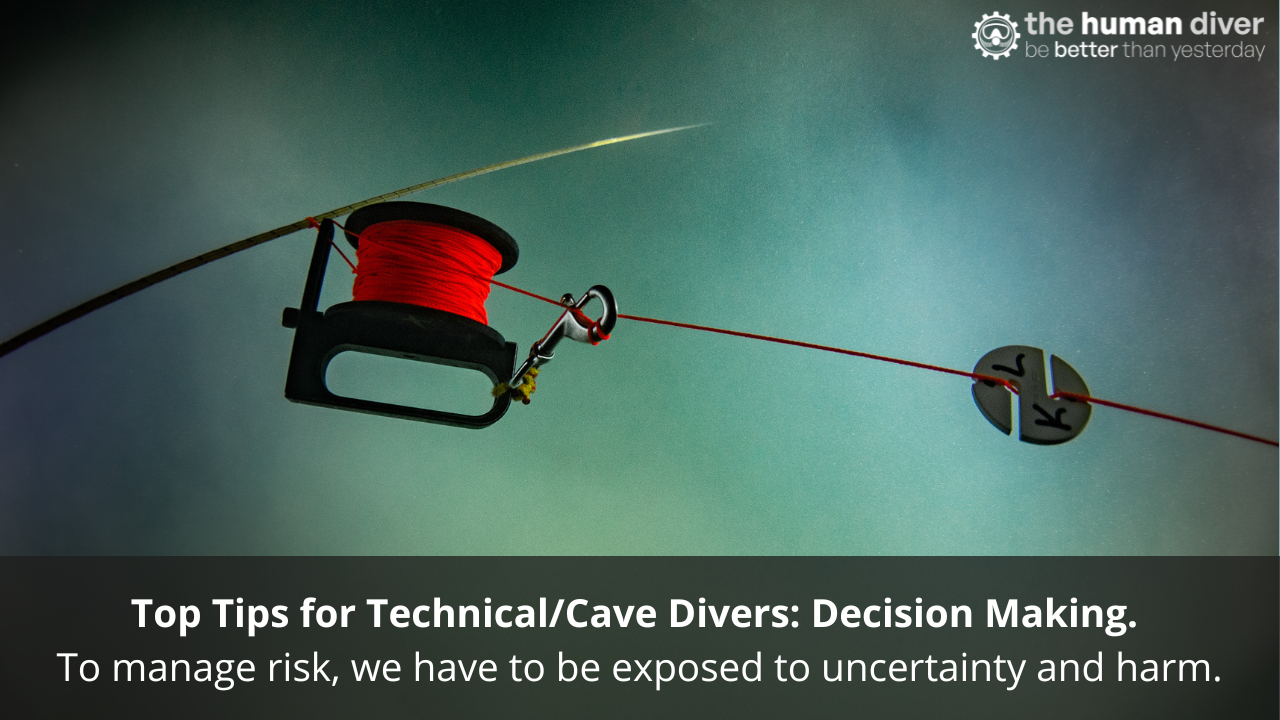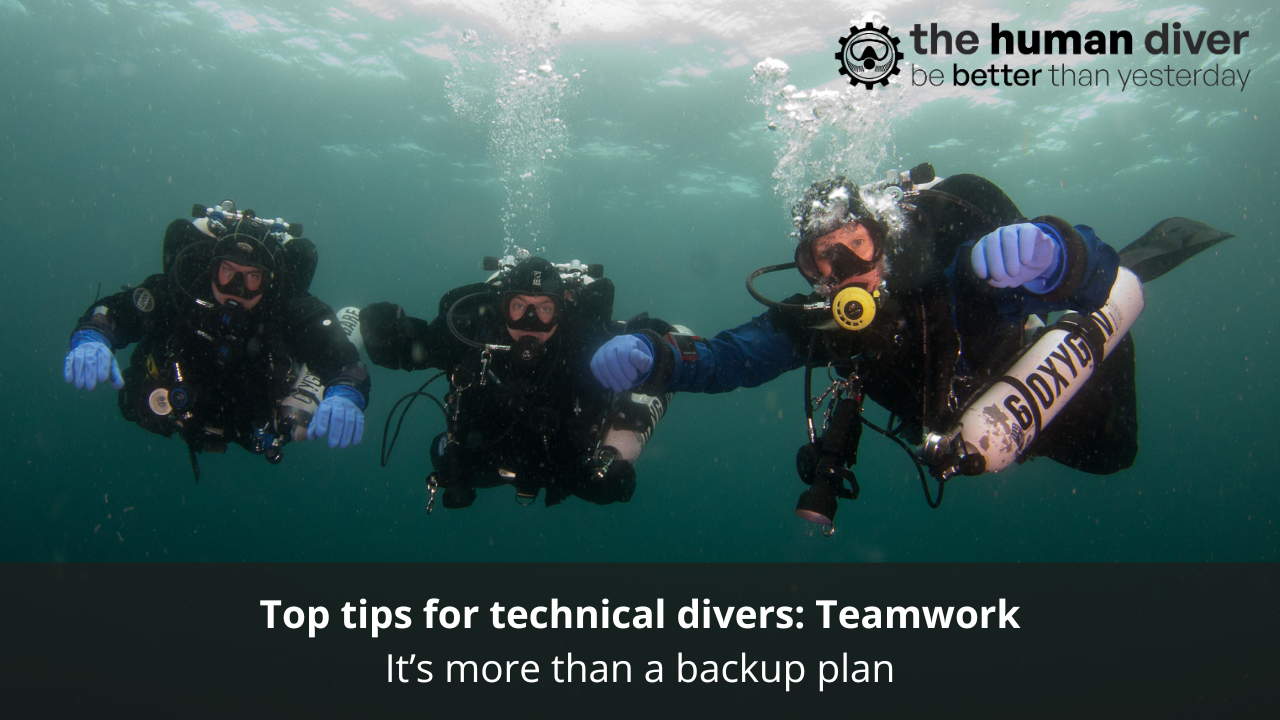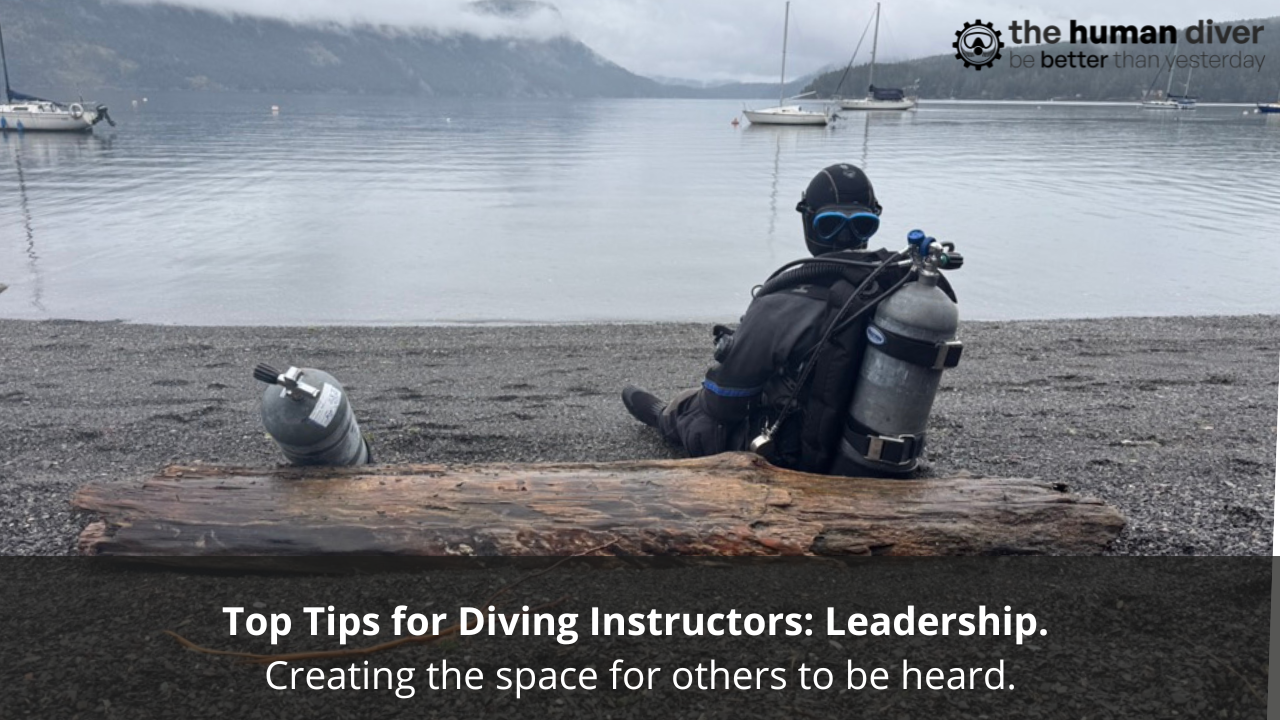
The First Human Factors in Diving Liveaboard- Living our values
Apr 02, 2025A few months ago, I got a call from Gareth who told me about a dive centre in Texas called Scuba Adventures, run by Brent Webb who wanted to add Human Factors into his upcoming liveaboard trip. I had a call with him and Mark S from Master Liveaboards who was equally as keen to get these skills on board the boat for the crew. We chatted about what kind of things we could do, and what everyone wanted to get out of it. The basic idea was let’s share some knowledge and practise the skills that we at The Human Diver teach.
Fast forward to the beginning of March, and 19 very happy divers got off the boat having shared many stories, learnt a lot, enjoyed developing a group culture…and seen lots of new critters and dived a new wreck. Five people in the group had taken the face-to-face class and the rest had been given the opportunity to take the Essentials class before we left, most of whom took that up, so there was already a level of understanding about what human factors and non-technical skills are.

With an aim of increasing people’s knowledge and common language, we had a talk almost every evening about different aspects of non-technical skills, from explaining what they are, to looking at how to build psychological safety, the decision-making process, teamwork, situation awareness and of course, debriefing. This was probably the biggest change for most people, the chance to debrief every dive. Some of the group knew each other beforehand but many didn’t, and the dive guides had never met any of us before. The debriefs gave everyone a chance to share their mental model of each dive, giving everyone 4-6 perspectives when before they only had their own. For the dive guides this was a chance for them to understand why someone had done something on the dive and give them the ability to help that person correct any mistakes or give them tips to improve. Over the trip everyone also started to look at the things that went right- and by drawing attention to them helped them to remember to do that same thing again.
We didn’t debrief every dive- not everyone wants to analyse every dive in detail, and it can be difficult to do when you’re not familiar with debriefing and everything appears to have gone right. It’s also not the easiest to be the one person driving the debriefs, and at times I simply ran out of energy, so it was fantastic when some groups started organising and running their own debriefs without my input. It was also made clear that the talks and debriefs weren’t mandatory, so it was fantastic that almost everyone came to the talks and most saw the value of the debriefs enough to jump in on them. We even had people sitting in on debriefs from dives they hadn’t done so that they could learn more!
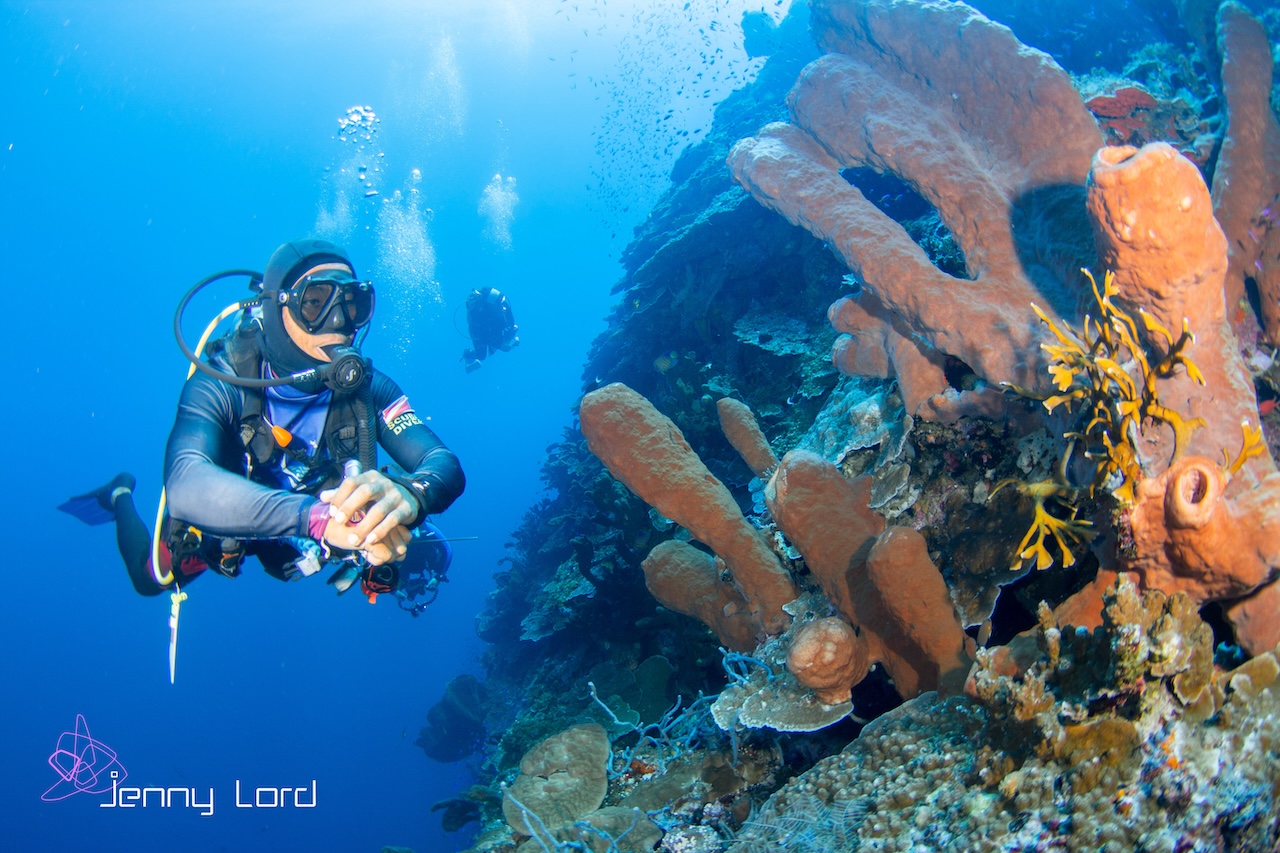
At the start of the week, I explained to everyone that my aim was to create a culture on the boat of psychological safety. To do that I began by sharing the story of my biggest mistake (you can read about it here). I explained that the talks and debriefs were completely voluntary, nobody was forced to join in. Everyone was invited to learn the concepts, ideas and skills I was sharing to let them see how to use and apply them and understand why it’s so important.
Not everyone chose to, but when it comes to learning about human factors and non-technical skills, being forced into it doesn’t work, as there is a lot of self-reflection involved. Even those who didn’t sit in on the talks joined for some of the debriefs, so they could help to share the mental models of the team. By the end of the trip, some of the group who hadn’t already taken the HFiD: Applied Skills face-to-face course were asking when the next course was, one person who’d already taken it wanted to do it again for a refresher and two people were asking how to become instructors! As it can be scary to hold a mirror up to your own behaviour, I think this shows how much everyone learnt, that they had become brave enough to want to do so.
Once we’d settled into the routine of things, and everyone was getting comfortable, we had a “story night”. Everyone was given the opportunity to share a dive story of a time when something went well, or not to plan. For those that spoke the stories ranged from minor mishaps to a fatality. I was delighted that everyone felt safe enough to be able to talk about things that had happened to them that may have been upsetting or embarrassing. The talks that came out of that evening gave people plenty of learning points, of changes of perspective and potential adjustments to their way of diving.
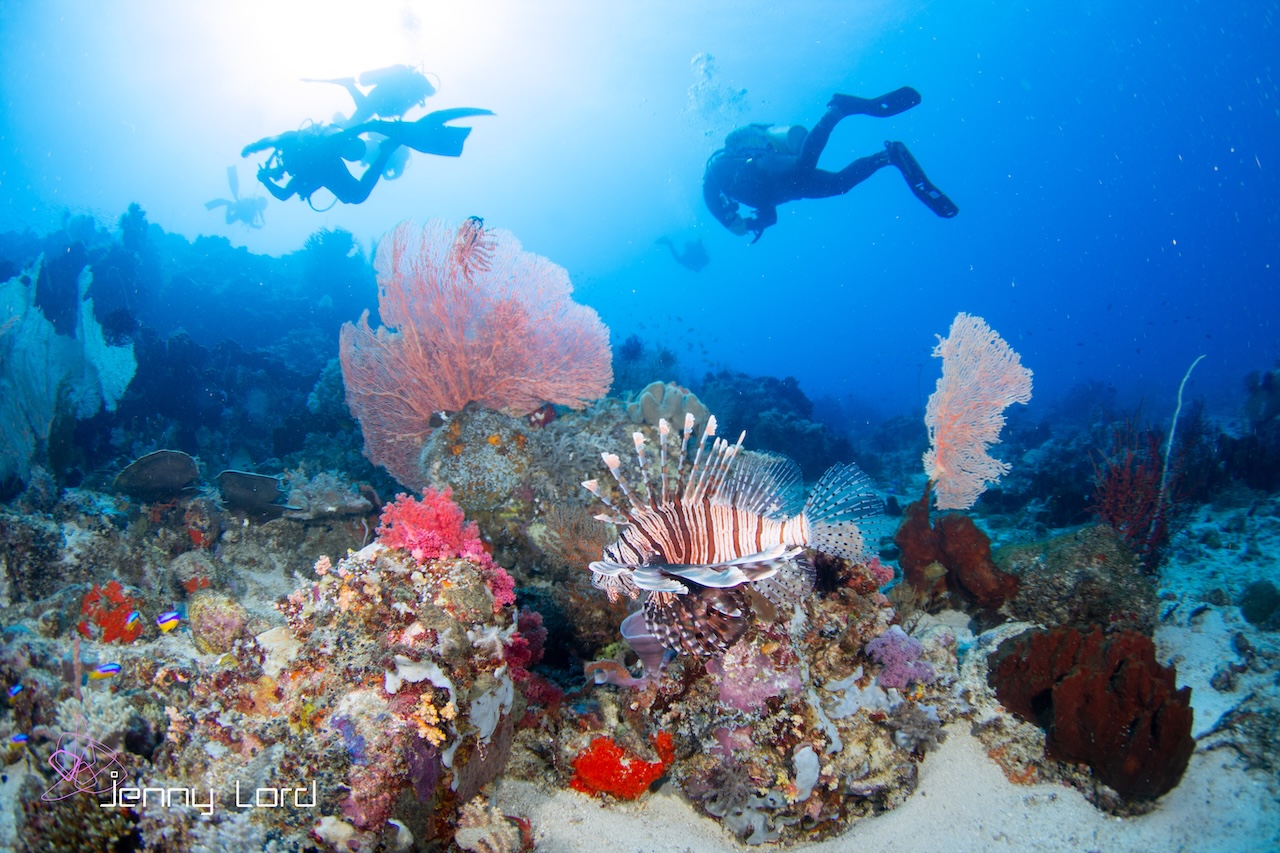
The talks ranged from topics like the Johari window to situation awareness, and the 4 Ps to decision making, teamwork and leadership. This gave even those who’d never heard about human factors before a chance to build some new ways of thinking about how they dive. As the time went on the talks got shorter and shorter as the discussion afterwards got longer and longer- it was definitely giving people food for thought.

One of the ongoing discussions throughout the trip was how to share all this newfound knowledge with others. Brent has previously likened learning about human factors to taking the red pill from The Matrix movie- it allows you to see the truth, no matter how uncomfortable that is. Most people elect to take the blue pill, ignore the truth and continue to live in oblivious comfort.
An added bonus, noted by one of the divers on the trips, was that consistent debriefing in a psychologically-safe environment meant that the guides no longer felt that their feedback in the debriefs would impact their tips at the end of the trip - they could provide the critical feedback that was needed - as it should be.
At the end of this trip, there were a lot of people who had not only taken the red pill, but also wanted to share it with others. We finished the week as a team, not perfect but with a shared understanding of how diving, and ourselves, can be better, and a boat crew who have a new perspective on running fun, friendly, trips where people feel secure enough to learn from mistakes, rather than trying to hide them or being chastised by them.

Jenny is a full-time technical diving instructor and safety diver. Prior to diving, she worked in outdoor education for 10 years teaching rock climbing, white water kayaking and canoeing, sailing, skiing, caving and cycling, among other sports. Her interest in team development started with outdoor education, using it as a tool to help people learn more about communication, planning and teamwork.
Since 2009 she has lived in Dahab, Egypt teaching SCUBA diving. She is now a technical instructor trainer for TDI, advanced trimix instructor, advanced mixed gas CCR diver and helitrox CCR instructor.
Jenny has supported a number of deep dives as part of H2O divers dive team and works as a dive supervisor and safety diver in the media industry.
If you'd like to deepen your diving experience, consider taking the online introduction course which will change your attitude towards diving because safety is your perception, visit the website.
Want to learn more about this article or have questions? Contact us.

